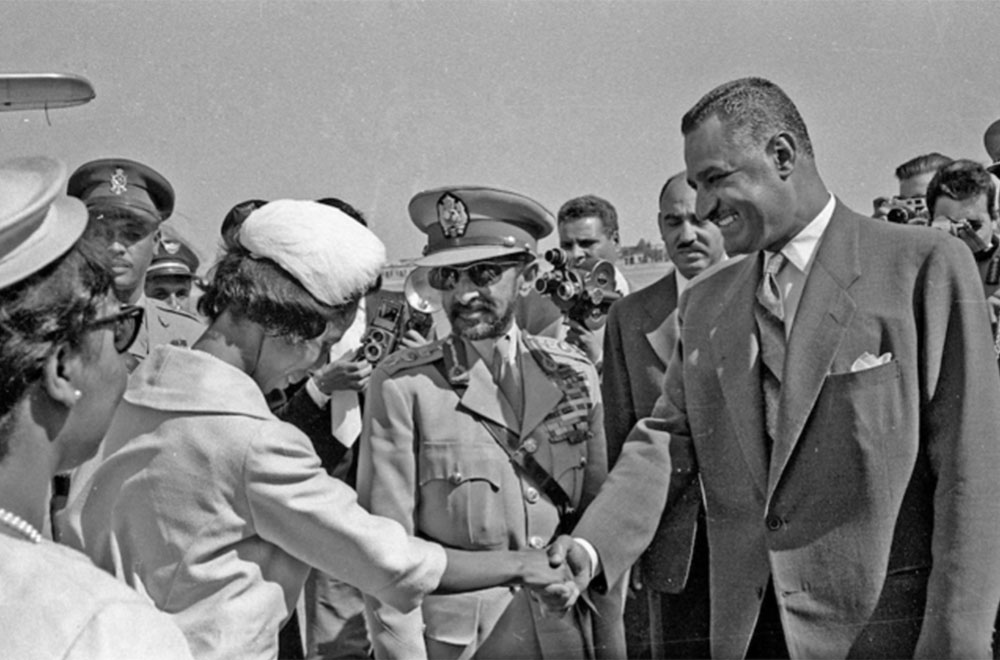SANKOFA, what happened to Solidarity?

The notion of Solidarity has recently returned to the forefront of political and cultural debates. The seminar examines the reasoning, the conditions, alliances and implications of Solidarity movements of the 1950s and 1960s, why they were deemed necessary and how they faded into oblivion by the end of the 1970s. What happened to notions like ‘Internationalism’, which underpinned solidarity between freedom fighters worldwide? We interrogate how and when terrorists are either labelled as liberation warriors or deemed to be terrorists. By looking at the tectonic shifts that have occurred in our current world order since the end of colonial empires and the Cold War, how do we redefine such concepts? Are they obsolete or are they more relevant than ever?
Sankofa is the name of the Adinkra symbol that portrays a mythical bird flying with its head looking back. In African Akan culture the symbol translates into ‘recognise the importance of looking to the past to make a better future’. The proposed discussion will highlight how archival narratives – or their lack – and what Saidiya Hartman would refer to as ‘critical fabulations’ and ‘missing frames’ are an essential factor in allowing us to reassess the way forward at such a critical juncture in world history. We will dissect some archival footage, picture collections and share anecdotes that have nourished our collective imaginary and become the foundation of some political mythologies. The seminar will home in on the year 1979 as a crucial historic turning point. This eventful year will serve as our point of departure, allowing us to emulate Sankofa as a methodology to reconnect the links of the chain of past and present hoping to unravel pathways that provide us with an alternative framework to plot the future.
Bio
Jihan El Tahri (Egypt/France) is a filmmaker, visual artist, writer and producer. Her work has been presented in museums, biennials and other spaces, including Dak’Art (Dakar), Bamako Encounters, Centre Pompidou (Paris) and HKW-Haus der Kulturen der Welt (Berlin), The National Museum of Norway (Oslo), Clark House (Bombay), San Ildefonso (Mexico City) and Museum of Modern Art (Warsaw). Her award-winning documentaries include Nasser (2015, premiered in the official selection of TIFF – Toronto International Film Festival), Behind the Rainbow (2008), Cuba, an African Odyssey (2007) and House of Saud (2004, nominated for an Emmy). As well as being a member of the Academy of Arts and Sciences (Oscars), she has sat on several selection committees, including of the Locarno Film Festival, Jeune Creation Francophone and Le Fond Franco-Tunisien. She has taken part in numerous film festival juries, including as President of the Documentary Jury at FESPACO.
The seminar will be conducted in English.
The seminar takes place within the scope of the second edition of Problematising reality – Encounters between art and philosophy, which is the result of a partnership between CAM / Calouste Gulbenkian Foundation, IFILNOVA (CineLab) / FCSH / UNL and Maumaus / Lumiar Cité. This is a series of six discussion sessions and four seminars taking place at the Calouste Gulbenkian Foundation, focusing on the moment when art and philosophy establish productive dialogues, proposing diverse approaches to contemporary thought. Each discussion session departs from a partial or full exhibition of works of art in the medium of film, accompanied by a reflection led by theorists, researchers or artists.
For further information, please contact:
Tel + 351 21 352 11 55
info@problematisingreality.com | www.problematisingreality.com | www.facebook.com/ProblematisingReality
Event supported by the Foundation for Science and Technology (Fundação para a Ciência e para a Tecnologia) of the Portuguese Ministry of Education and Science under the project UIDB/00183/2020 and UIDP/00183/2020.
Intensive Seminars

